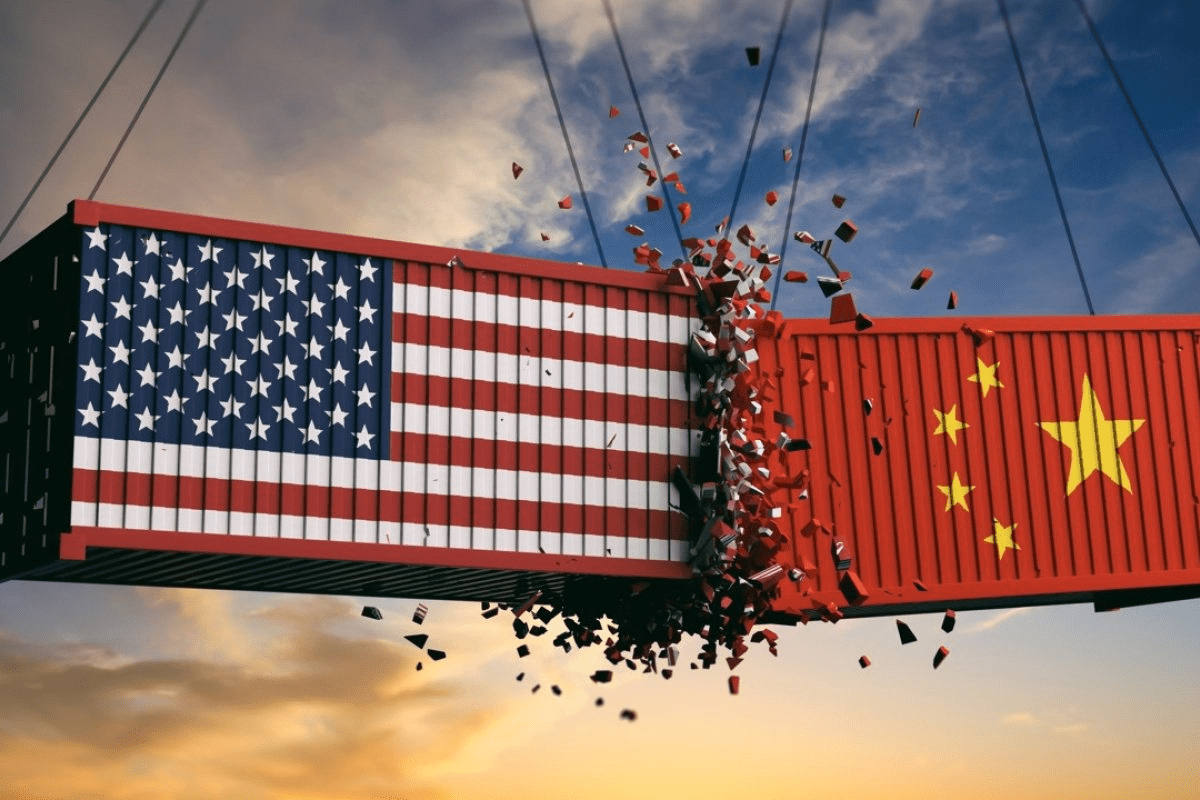
Why Skills-First Leadership Is Replacing the Ivy League Playbook in the C-Suite
The old prestige pyramid—where Ivy League degrees and blue-chip consulting backgrounds paved the way to the CEO seat—is cracking.

May 19, 2021: -American companies are bearing most of the cost burden from the high tariffs imposed at the height of the U.S. and China trade war, Moody’s Investors Service says.
In a Monday report, the rating agency said that U.S. importers absorbed over 90% of additional costs, which resulted from the 20% U.S. tariff on Chinese goods.
Meaning the U.S. importers pay nearly 18.5% more in the price for a Chinese product subject to that tariff rate of 20%, while Chinese exporters receive 1.5% less for the same effect, according to the report.
“A majority of the cost of tariffs have been passed on to U.S. importers,” Moody’s said.
“If the tariffs remain in place, pressure on U.S. retailers will likely increase, leading to a greater pass-through to consumer prices,” the agency said.
Higher trade tariffs came into force during Trump’s term. Most of those tariffs remained in place and affected over half of all trade flows amid the U.S. and China, said Moody.
U.S. tariffs on Chinese goods stood at an average of 19.3% on a trade-weighted basis in 2021, while Chinese tariffs on American products were nearly 20.7%, according to data compiled by think tank Peterson Institute for International Economics.
Before the U.S. and China trade war in the year 2018, U.S. tariffs on Chinese goods were at 3.1%, while China’s tariffs on American goods were at 8%, the data showed.
U.S. importers are not the only ones bearing the brunt of the high tariffs.
In The reports, Moody said that U.S. exporters also absorbed most of the costs from tariffs imposed by China. That’s partly due to the U.S. exports targeted by those retaliatory tariffs are products that may be sourced from other places, like agricultural goods.
Economists and businesses argue that Trump’s tariffs on China harm the U.S. economy while not forcing China to reverse its unfair trade practices.
Previously, president Joe Biden said he disagreed with Trump’s approach to China but is not in a hurry to reverse his predecessor’s policies. His administration had suggested that it’s open to using tariffs to fight China’s unfair trade practices. Some observers said the tariffs could give the U.S. leverage for China.

The old prestige pyramid—where Ivy League degrees and blue-chip consulting backgrounds paved the way to the CEO seat—is cracking.

Loud leaders once ruled the boardroom. Charisma was currency. Big talk drove big valuations.

But the CEOs who make history in downturns aren’t the ones with the deepest cuts

Companies invest millions in leadership development, yet many of their best executives leave within a few years. Why?

The most successful business leaders don’t just identify gaps in the market; they anticipate future needs before anyone else.

With technological advancements, shifting consumer expectations, and global interconnectedness, the role of business leaders

At seventeen, Professor Richard Rose stepped into a world few adults dare to navigate: the world of children fractured by trauma. He wasn’t a clinician then, nor a scholar. He was simply a young man with a heart tuned to the quiet ache of others.

Following a distinguished Law Enforcement career Joe McGee founded The Securitatem Group to provide contemporary global operational specialist security and specialist security training products and services for private clients, corporate organisations, and Government bodies. They deliver a wide range of services, including complete end-to-end protection packages, close protection, residential security, protection drivers, and online and physical installations. They provide covert and overt investigations and specialist surveillance services with a Broad range of weapons and tactical-based training, including conflict management, risk and threat management, tactical training, tactical medicine, and command and control training.

Jay Wright, CEO and Co-Owner of Virgin Wines infectious energy, enthusiasm, passion and drive has been instrumental in creating an environment that encourages talent to thrive and a culture that puts the customer at the very heart of every decision-making process.

Fabio de Concilio is the visionary CEO & Chairman of the Board at Farmacosmo, a leading organization dedicated to mental health and community support services. With a deep commitment to identifying and meeting customer needs, Fabio ensures that high standards are maintained across the board.

Leave us a message
Subscribe
Fill the form our team will contact you
Advertise with us
Fill the form our team will contact you